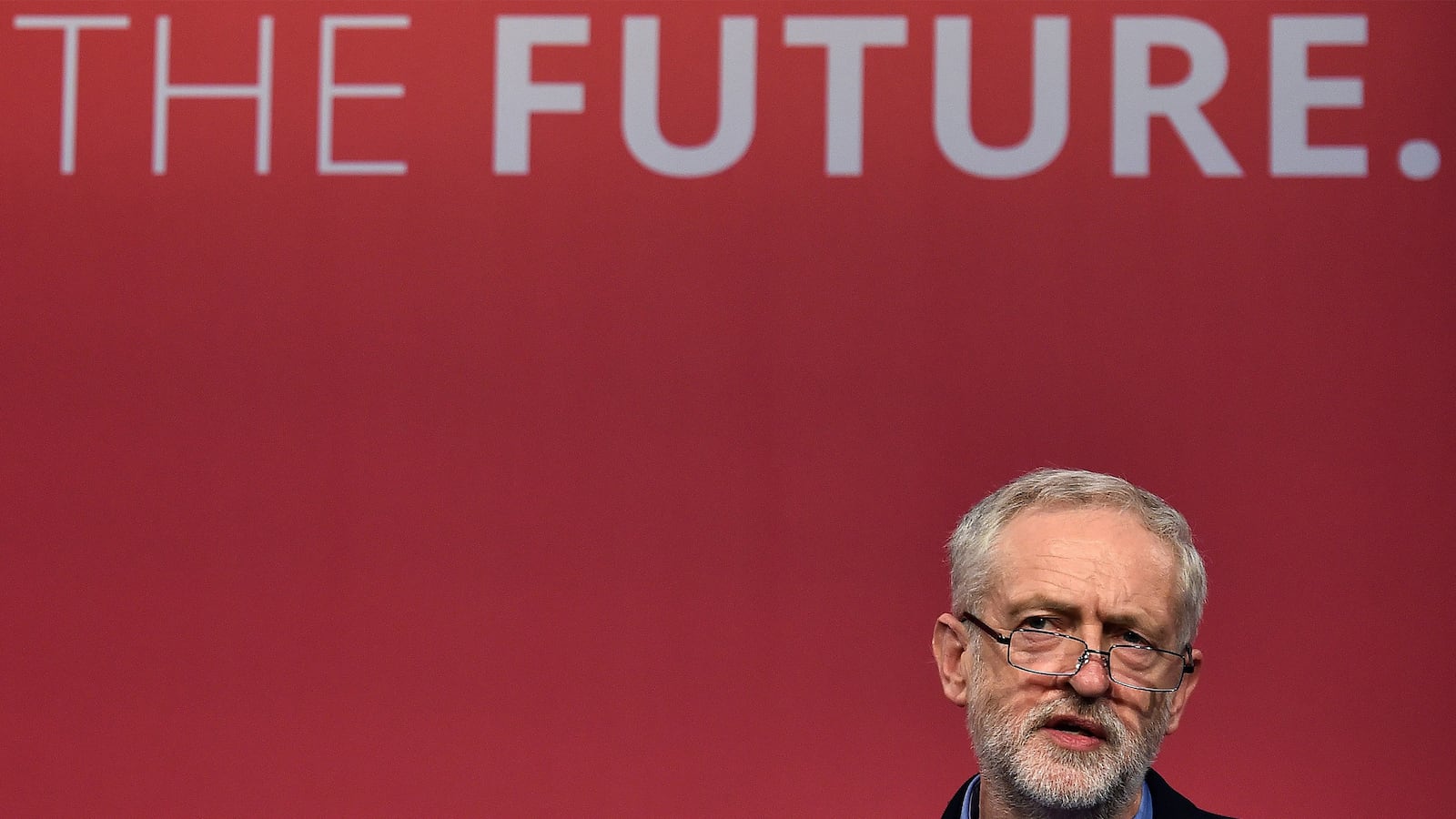We are living in a spiteful, populist time.
Peddling hate makes for popular politicians and being angry is the new “being cool.” Across the Western Hemisphere a new type of leader is emerging whose rise to power has been as unpredictable as it has been swift. And the one thing these new leaders and their supporters have in common is not their politics, but their utter disdain for their political opponents and the entire “establishment.” And yes, I could be talking about Donald Trump in America, or the far-left rise of Jeremy Corbyn in the U.K. But I could just as easily be referring to the longer-term rise of Western Islamism, or far-right anti-Muslim street movements such as Germany’s Pegida and others across Europe. And whether we consider expanding campus coalitions to Boycott, Divest and Sanction (BDS) Israel, or the intransigence of extremist Israeli settlers, what many of these movements’ followers share is the desire not just to disagree with their opponents, but to delegitimize, dehumanize, and ostracize those with whom they disagree.
The resulting climate is one in which division, bitterness and hate is on the ascendency. It is now simply assumed that anyone publishing satirical content scrutinizing the Prophet of Islam will be murdered by jihadists. Government ministers are warning of the sharp rise in the U.K. and across Europe of anti-Semitic attacks, while London’s Metropolitan Police reported a 70 percent rise in anti-Muslim incidents. When a homeless Mexican immigrant was recently beaten and urinated on in the U.S., allegedly by suspect Scott Leader while telling police that “Trump was right,” Trump’s response was to call his supporters passionate. Alongside this, European far-right movements don’t just represent the more thuggish Neo-Nazi Golden Dawn in Greece, but the more sophisticated politicos of Austria’s Freedom Party, Sweden’s “Democrats” and Holland’s Party for Freedom, each with significant and worrying levels of Parliamentary representation.
To question the dogma of any of these saviors of the human condition online is to invite a modern-day virtual lynching which in many cases has offline implications. This directed, targeted and vicious vitriol against individuals who dare to disagree is invariably achieved by inviting a mob to join in, then relishing in the utter defrocking and public shaming of the designated miscreant. As Sir Timothy Hunt recently discovered to his dismay, to deploy a very British sense of self-deprecating irony before a handful of politically charged activists seeking disagreement can unleash the very gates of virtual hell, one powerful enough to strip even a Nobel Prize-winning scientist of his various honorary positions.
It is not their policies that these new populists share, but their emphasis on a new kind of identity politics. The atomization of information, borne of the Internet Age, is having the opposite effect to what many commentators had previously assumed. As people’s opportunities to succumb to confirmation bias increases online—only seeking out information that confirms their prejudices—ignorance, extremism and close-mindedness have continued to rise unabated. What would previously have been isolated cases of parochial bigotry with no outlet to vent are now thriving global sub-communities of people identifying around discriminatory uber-identities. Islamist, Hindu-fundamentalist, racially aligned-activists, the extreme settler-movement in Israel, and far-left regressives have all emerged of late to form comfortable groupings focusing on cultural “authenticity,” cultural struggle, and cultural dominance.
Any centrist seeking to assert an open-minded and tolerant position between these extremes is instantly subjected to a torrent of abuse from all sides. To hold ideas beyond one’s cultural “station,” and to question these uber-identities, risks instantly being deemed a blood-traitor, a native-informant or a sell-out Uncle Tom. It is as if ideas have color and the pursuit of truth should remain segregated along racial or cultural lines.
And as these groups indulge in their own daily version of Orwell’s Two-Minutes Hate, each with their own little Emmanuel Goldstein-like traitor figure to irrationally rage at, because it feels good, the voices of those who are more comfortable with doubt are being drowned out.
Traditionally, open-minded secular liberal rationalists have not made a case for tolerance. Being opposed to preaching “truth,” those who prefer doubt over dogma and skepticism over certainty have entertained, but never engaged in arguments. But if we are to have any hope in pushing back against the rise of this Daily Hate, skeptics will need to arrive at one irrevocable truth, and then preach it: I may be wrong, but you are certainly not right. The only certainty we have is that those who are certain of a way to arrive at worldly salvation, are committed enough to organize around this, and seek power to enforce it, will invariably descend into a bloody totalitarian fascism. Dogma not only blinds its protagonist, but it muzzles all other opposition. We must mount civil society struggles for skepticism to prevail. The only way to defeat these modern political certainties is to be certain in only one thing: our doubt.





